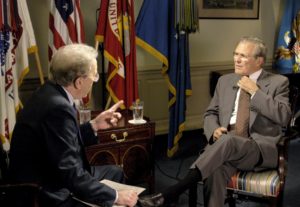 This is the third in a series about using Disruptive Questioning to detect deceptive responses by increasing a suspected liar’s cognative load.
This is the third in a series about using Disruptive Questioning to detect deceptive responses by increasing a suspected liar’s cognative load.
For many years, UCLA Professor of Psychology R. Edward Geiselman has studied, practiced, written about and taught the effectiveness of Disruptive Questioning as an interviewing strategy. During the course of his work, he identified certain traits about deceptive personalities and effective methodologies which can increase their cognative load to help uncover lying.
- Most people are terrible liars. They worry about getting caught, and they do not provide very complete information about the lie. “They intentionally tell the minimum because they know they have to maintain the lie over time, and they also think that saying too much will appear to be deceptive.” Most importantly, this mindset requires a lot more cognative energy. When Disruptive Questioning is employed during an interview, this adds to the already heavy load and increases the chance of further mistakes in a liar’s statement.
- When challenged with Disruptive Questions, deceptive people frequently will not answer the question or will provide a weak response. “They may object to the challenge by saying something like, ‘I’m not that kind of person, why would I lie?,’ rather than answering the question.”
- Geiselman has studied the interviewing techniques of police detectives, intelligence personnel, lawyers and HR personnel, and he has identified several Disruptive Questioning strategies that fit many different interviewing situations.
- Asking open-ended questions gets the liar talking and thus increases his cognative load. Frankly, this should be a routine approach to get any witness, claimant or job applicant talking while at the same time giving the interviewer time to process what is being said and formulating the next question. Asking “tell me more about” or “explain that in more detail” and then remaining silent after a suspected deceptive statement is made, can cause a liar to exhibit incriminating physical behavior as well as to utter further suspicious statements.
- Ask the interviewee to tell their story backwards in all or in part. This reverse-order technique adds to the already heavy cognitive load, increasing the likelihood of the telltale signs of deception.
We use the reverse-order technique near the end of the interview when we think we’ve got about as much information as we’re going to get from their story and our follow-up questions. We’ll say something like, “Thank you very much for what you’ve told me. It’s been very helpful, but now I’d like you to try just one more thing to see if you can remember anything further. I’d like you to start at the very end of the story as you’ve told it and go backwards in time, being as detailed as you can.” Deceptive people have a great deal of trouble doing that. Some truthful people do as well, but, when done, the basic indicators of deception start showing up.
Most liars are not very good at telling a lie. At the same time, without training and without experience, most interviewers are ill equiped to detect deception. Disruptive Questioning employed by an experienced and trained interviewer can be a very effective tool in uncovering lies. It is just one of many tools, however, in an interviewer’s toolbox. Descriptions of other approaches have been posted on RNI’s blog at http://www.researchnorth.com/blog/ Take time to review and practice those which work best for you.
More about Disruptive Questioning in RNI’s next Newsletter!
Research North, Inc. (RNI), is a professional private detective service providing support to the business community, the insurance industry and individuals in Michigan and Wisconsin since 1981. The company also offers pre-employment background checks to small and medium sized businesses through a subsidiary called Backgroundcheckswork.com that is fully staffed by professional investigators who are retired from law enforcement.
Delivering Information That Works For You
INSURED • QUALIFIED • THOROUGH • RELIABLE • CONFIDENTIAL • FAST